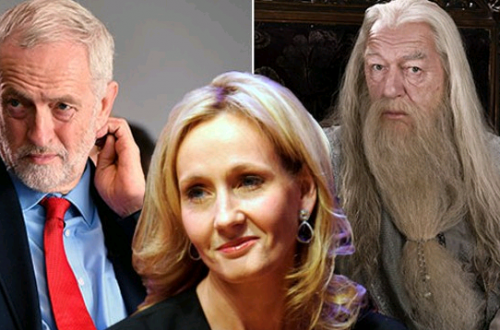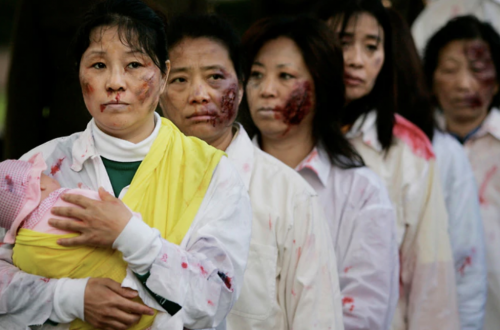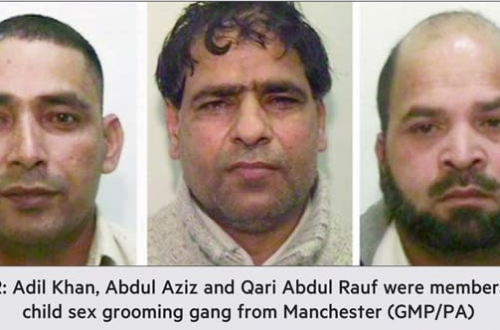Extremism seems to be near the top of the Government’s agenda, judging by the speed with which they have brought forward proposals which their Liberal Democrat partners had previously blocked:
The measures would give the police powers to apply to the high court for an order to limit the “harmful activities” of an extremist individual. The definition of harmful is to include a risk of public disorder, a risk of harassment, alarm or distress or creating a “threat to the functioning of democracy”.
The aim is to catch not just those who spread or incite hatred on the grounds of gender, race or religion but also those who undertake harmful activities for the “purpose of overthrowing democracy”.
It is possible to agree about the nature and scale of this problem while being uncertain whether the Government’s suggested measures represent the best way forward.
One response has been that legislation may not be the right tool for tackling the problem. It’s difficult to quash ideas by force – better ideas may be more effective. Of course ideas can’t do much unless they are shared and articulated by more than a minority. Some have been slow to recognize and acknowledge that there even is a problem, often because they have been wary of being on the same side (at least superficially) as the far right. The Trojan Horse revelation may have made some impact on such people, and the unmasking of CAGE perhaps achieved even more. A recent post on Islamicate acknowledges, from a Muslim perspective, some of the problems with CAGE and other similar groups:
So with the new parliament, it is inevitable that the scaremongering shall resume, either by concentrating on the Prevent strategy or a resurfacing Snoopers Charter. And even where vocal rhetoricians restrict issues of relevance to these two, their efforts are palpably pointless since Muslims effectively hold no political clout whatsoever, and when they attempt to do something it tends to make the situation worse. The most recent example is one that was so badly conceptualised that it made them look like extremist sympathisers; incongruously, in place of bringing the security services to account CAGE managed to provide the argument for harsher measures and rally the public to mandate them. For the wider Muslim community, there were ramifications with a greater impact: CAGE, speaking as a Muslim-cum-quasi-human rights organisation inadvertently made it look like Muslims were more concerned with the rights of extremists who’d eventually join ISIS than the security of the country and its citizens.
This morning Victoria Derbyshire hosted a discussion which revealed some of the tensions, debates and uncertainties in play here. Quilliam’s Haras Rafiq suggested some of the new measures might be effective, but emphasised that it was important to go beyond seeing this through ‘the lens of criminality and legislation’ and ensure that we also have a strategy to ‘use civic society to combat this problem’.
Labour’s David Hanson seemed entirely willing to acknowledge the seriousness of the ‘poisonous ideology which we need to counter’. But when Victoria Derbyshire observed that she had interviewed people with ‘very orthodox views which others find unpalatable’, generally preachers, and asked whether such people should/would lie within the scope of the legislation, Hanson was quick to exclude this group from the category of those which should be targeted. This led Derbyshire to ask who he thinks does need to be targeted given that terrorism and violence are already clearly proscribed. His concerns about judicial oversight and an appeals mechanism were reasonable, but his grasp of the problem seemed vague.
Haras Rafiq went on to make the point that banning those with hateful views could alienate people – perhaps including those who are not themselves so extreme – and lead to such views ‘fermenting within certain spaces’. That was an entirely reasonable point, but it’s difficult to be sure quite how much weight to give to such effects, when weighing up the pros and cons of any new legislation. Dal Babu, a Muslim ex-police officer, said it was vital that any legislation should be brought in ‘with full cooperation of the community’. Obviously it’s wrong to alienate people unnecessarily, but legislation inevitably sometimes alienates quite a few members of a particular group while reflecting a broad consensus across the population as a whole. Babu insisted repeatedly on the importance of keeping the Muslim community, represented by particular organisations, on board. He rightly identified Anjem Choudhary as someone just about everyone could agree was extreme, but then offered a very unhelpful example of a legitimate use of free speech – arguing the rights and wrongs of Gaza. Few are going to claim that this is not a legitimate topic for debate – the real pinch points are issues such as supporting (ideally) death for homosexuality or apostasy. Rafiq countered his emphasis on the community by insisting that Muslims needed to be treated as individuals rather than as part of a faith-based identity group.
Prospect analyses the pros and cons of these new measures here.


